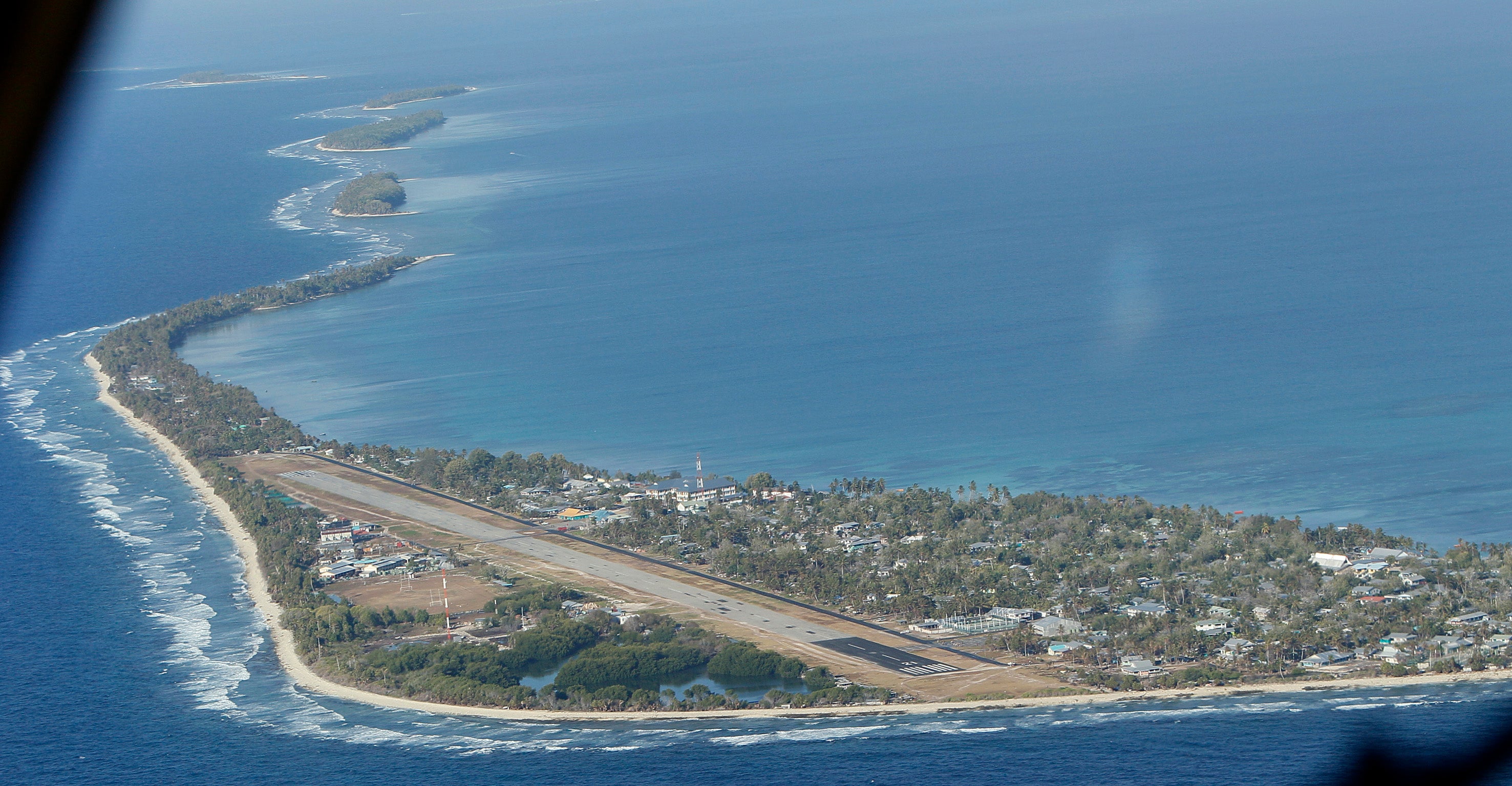Tuvalu's new government commits to continued diplomatic ties with Taiwan instead of Beijing
Tuvalu’s new government has committed the tiny South Pacific island nation to continued diplomatic ties with Taiwan, but said it plans to renegotiate a security pact recently struck with Australia in response to China’s growing regional influence

Tuvalu’s new government on Wednesday committed the tiny South Pacific island nation to continued diplomatic ties with Taiwan instead of switching to Beijing, but said it plans to renegotiate a security pact recently struck with Australia in response to China’s growing regional influence.
Prime Minister Feleti Teo and his seven Cabinet ministers were sworn into office on Wednesday following a general election last month in the strategically significant nation of 11,500 people.
Election campaign issues included whether the former British colony should switch its diplomatic allegiance from Taiwan to Beijing. Some candidates proposed scrapping a treaty, yet to be ratified, that would give Australia veto power over any security or defense-related agreement Tuvalu wants to make with any other country, including China.
The new administration released a Statement of Priorities that commits it to maintaining the diplomatic relationship with Taiwan that has existed since Tuvalu became independent in 1978.
Tuvalu “intends to assess options that would strengthen and lift it to a more durable, lasting and mutually beneficial relationship,” the statement said.
In Beijing on Monday, Chinese Foreign Ministry spokesperson Mao Ning urged Tuvalu to switch diplomatic recognition to China.
“We call on a handful of countries that still keep the so-called relationship with the Taiwan region to stand on the right side of history and make the right decision that truly serves their long-term interest,” she said.
The China issue was heightened last month when Nauru, another Pacific island nation, cut ties with Taiwan.
Tuvalu is one of only 12 countries that have official diplomatic ties with Taiwan, a self-governed democracy that China claims as its own territory.
The new Tuvalu government said it supports the “broad principles and objectives” of the bilateral security pact with Australia that was announced last November.
But it acknowledged an “absence of transparency and consultations” behind the treaty and said it wants to renegotiate the deal with a focus on “safeguarding the integrity of the sovereignty of Tuvalu.”
Tuvalu’s low-lying atolls make it particularly vulnerable to global warming. In the treaty, Australia offered Tuvaluans a lifeline to help residents escape the rising seas and increased storms brought by climate change. Australia would initially allow up to 280 Tuvaluans to come to Australia each year.
The treaty also commits Australia to help Tuvalu in response to major natural disasters, pandemics and military aggression.
In return, Australia would gain the contentious veto power that is seen as an attempt to prevent a Chinese military foothold in Tuvalu.
The United States and Australia, its influential ally in the region, have been rapidly building bridges with Pacific island nations in response to China signing a security pact with the Solomon Islands in 2022 that raised the prospects of a Chinese naval base being established in the South Pacific.